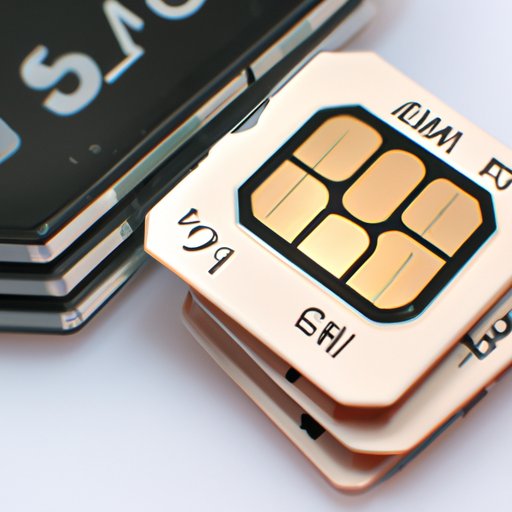Introduction
GSM stands for Global System for Mobile Communications and is one of the most widely used mobile communication technology in the world. Understanding GSM phone technology is essential for choosing the right phone for your needs. In this article, we will explore what GSM phone technology is and why it is important to understand it before making a purchase.

A Guide to GSM Phones: What You Need to Know
GSM phones are mobile phones that use GSM technology. This technology provides a wide range of features and advantages, making it a popular choice among users. Let’s take a look at some of the benefits of GSM phone technology.
Exploring the Benefits of GSM Phone Technology
GSM technology offers several advantages over other types of mobile phone technologies. Here are some of the key benefits of GSM phone technology:
- Cost Savings: GSM technology is generally cheaper than other mobile phone technologies, making it a cost-effective option for many users.
- Wide Coverage: GSM networks have wide coverage, making it easy for users to stay connected even when travelling.
- Flexibility: GSM technology is highly flexible, allowing users to switch between different networks and services easily.
- Security: GSM networks provide strong security, making them a safe option for users who need to protect their data.
An Overview of GSM Phone Technology and its Advantages
GSM technology was developed by the European Telecommunications Standards Institute (ETSI) in the late 1980s. It is based on a network architecture that uses multiple base stations and cell sites to provide coverage to users. GSM networks also offer a variety of digital data services, such as text messaging, multimedia messaging, and internet access.
GSM technology also offers users the benefit of mobility. This means that users can move freely between different networks without having to change their phone number or service provider. This makes GSM phones an ideal choice for users who travel frequently.

How GSM Phones Differ from Other Mobile Phone Technologies
GSM phones are different from other types of mobile phones in several ways. Let’s take a look at how GSM phones differ from CDMA phones.
GSM vs. CDMA
CDMA stands for Code Division Multiple Access and is another type of mobile phone technology. While both GSM and CDMA technologies offer similar features and services, there are some key differences between the two.
- Differences in Network Architecture: GSM networks use a cellular network architecture, while CDMA networks use a code division multiple access (CDMA) system.
- Differences in Data Transfer: GSM networks are capable of transferring data at higher speeds than CDMA networks.
- Differences in Voice Quality: GSM networks typically offer better voice quality than CDMA networks.

Understanding the Basics of GSM Phone Technology
In order to make the most of GSM phone technology, it is important to understand the basics. Here are some of the key components of GSM phone technology that you should be aware of:
- Subscriber Identity Module (SIM) Cards: SIM cards are small cards that contain a user’s personal information and allow them to access their GSM network. SIM cards can be swapped between different devices, making it easy to switch between different networks.
- International Roaming: GSM networks allow users to access their network from anywhere in the world. This makes it easy for users to stay connected while travelling.
- Short Message Service (SMS): SMS is a type of text messaging service that allows users to send and receive short messages over GSM networks.
Comparing GSM and CDMA Phone Technologies
When deciding between GSM and CDMA phone technologies, it is important to consider the differences between the two. Here are some key areas to consider when comparing GSM and CDMA phone technologies:
- Network Architectures: GSM networks use a cellular network architecture, while CDMA networks use a code division multiple access (CDMA) system.
- Data Transfer Rates: GSM networks are capable of transferring data at much higher speeds than CDMA networks.
- Voice Quality: GSM networks typically offer better voice quality than CDMA networks.
Conclusion
GSM phone technology offers a wide range of benefits to users. It is a cost-effective, secure, and flexible technology that can provide users with reliable coverage and access to a variety of digital services. Understanding GSM phone technology is essential for choosing the right phone for your needs.


